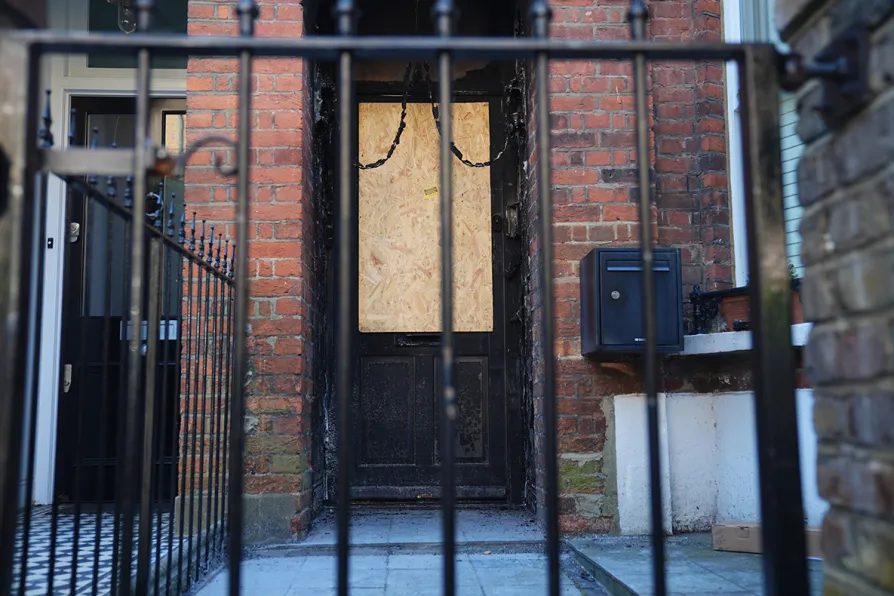
 A view of the entrance to Sir Keir Starmer's house in Kentish Town, north London after a suspected arson attack, May 13, 2025
A view of the entrance to Sir Keir Starmer's house in Kentish Town, north London after a suspected arson attack, May 13, 2025
PROTESTERS could face up to six months in jail for demonstrating outside politicians’ homes, the Home Office announced today.
Under proposed amendments to the Crime and Policing Bill, demonstrating outside the home of public office holders — where the intention is to “influence them in their role or an aspect of their private life” — will be made a criminal offence.
Security minister Dan Jarvis claimed the measure was “serious but necessary and proportionate.”
He said: “Targeting public office holders at their homes crosses a line — it’s intimidation, not protest, and we’re putting a stop to it.”
Currently at committee stage in the House of Lords, the Crime and Policing Bill has already drawn criticism over its clampdowns on the right to protest.
The rules are set to give police sweeping powers to ban face coverings at demonstrations, while another clause suggests enforcing restrictions on the grounds that protests may intimidate and deter people from attending places of worship.
The government also announced plans last month to hand police new powers to put conditions on repeat protests, which could allow them to instruct for demonstrations to be held elsewhere.
Today, the government tabled the restrictions as an amendment to the Crime and Policing Bill, which says that when considering whether to restrict a protest, a senior police officer “must” take into account any cumulative disruption caused by past demonstrations, regardless as to whether they were organised or attended by the same people.
Liberty head of policy and campaigns Ruth Ehrlich said: “The government’s plans to restrict repeat protests go even further than we had feared, and combined with other anti-protest measures in the pipeline like bans on face coverings, will see the right to protest in the UK stripped to the bone.
“Police already have extensive powers to restrict protests, yet these measures add to an ever-expanding web of anti-protest laws.
“It is becoming harder and harder for people to exercise their democratic right to protest without falling foul of the law.”

Court of Appeal rules key anti-protest legislation was forced through unlawfully













